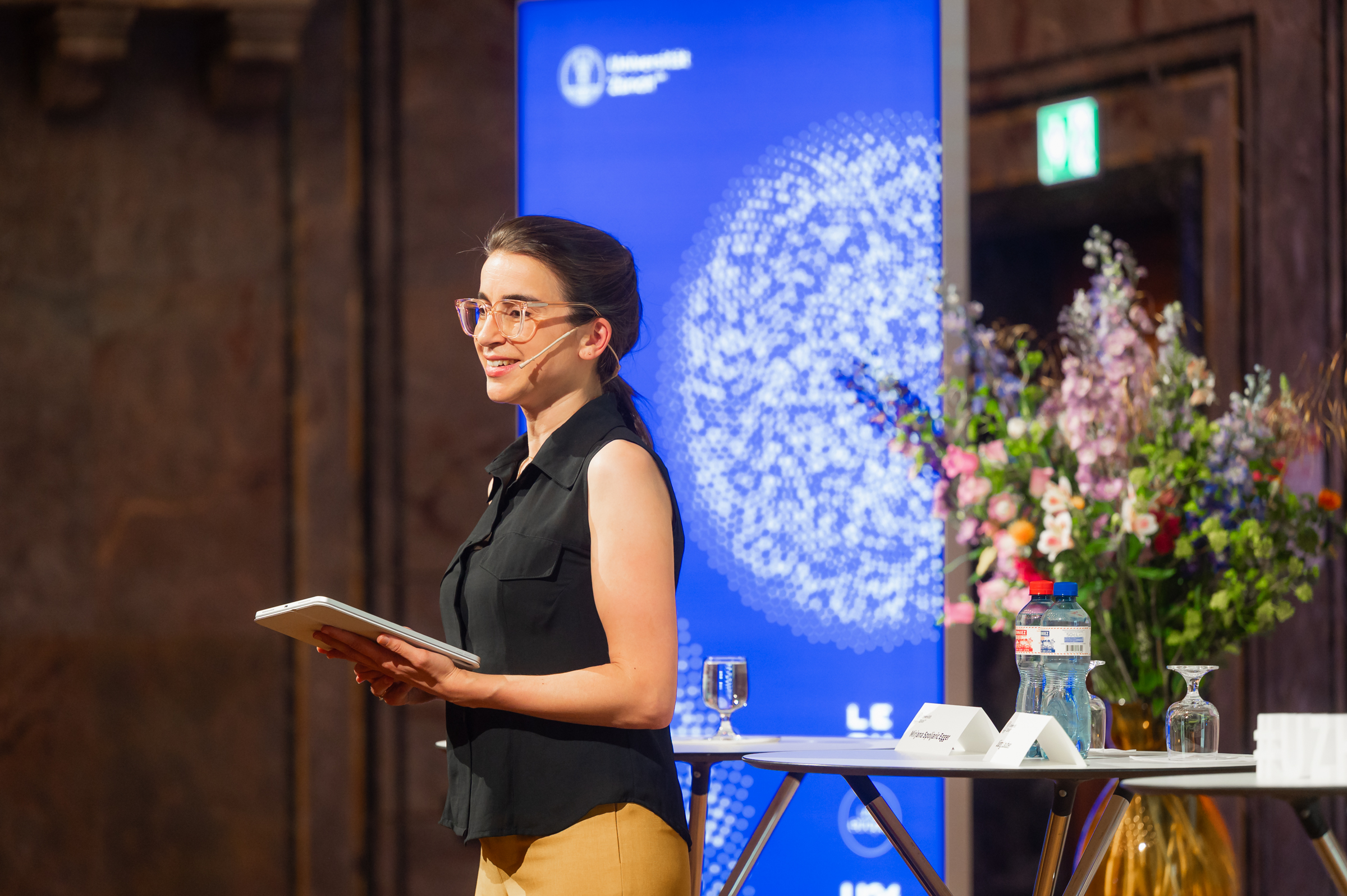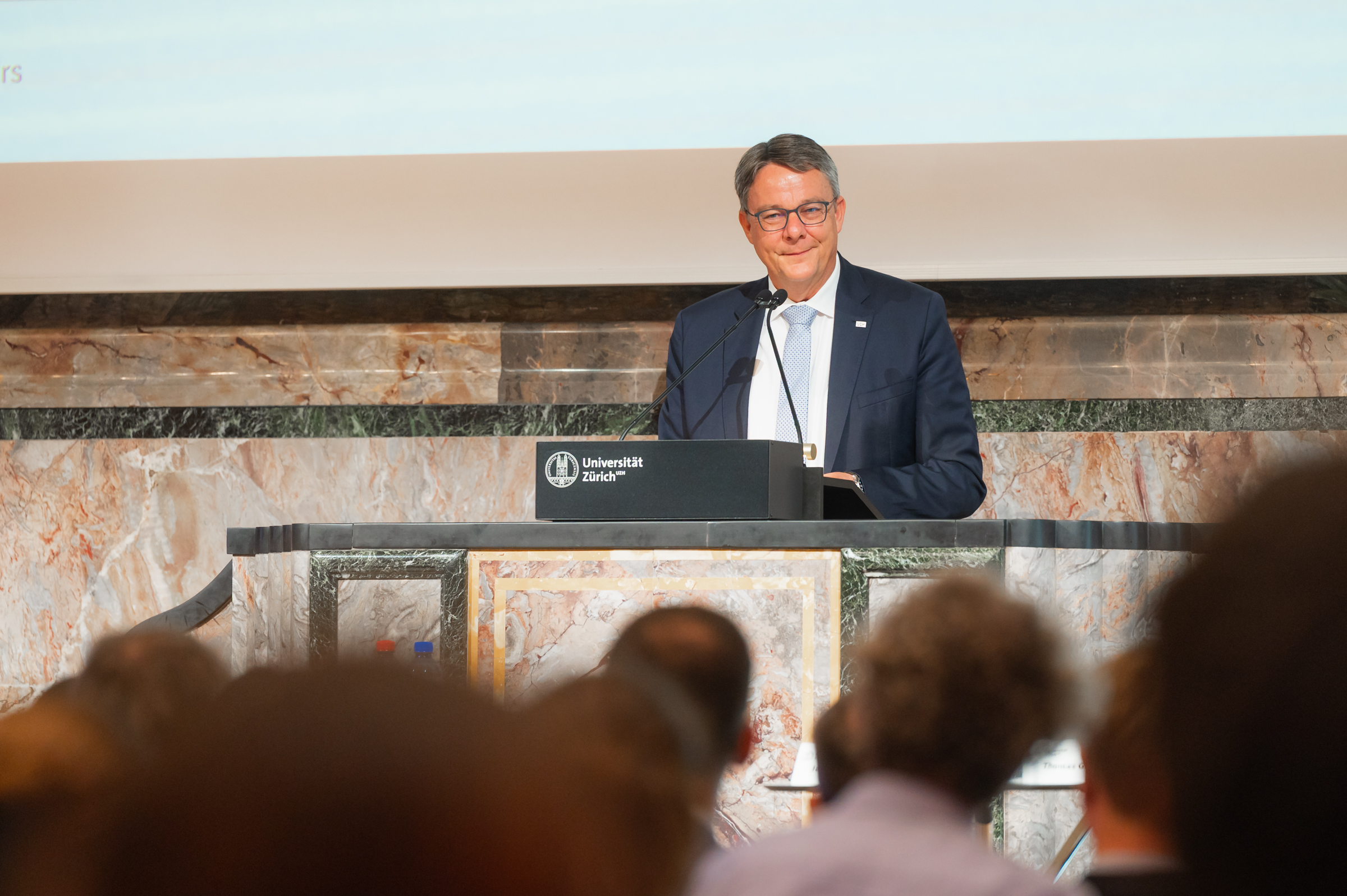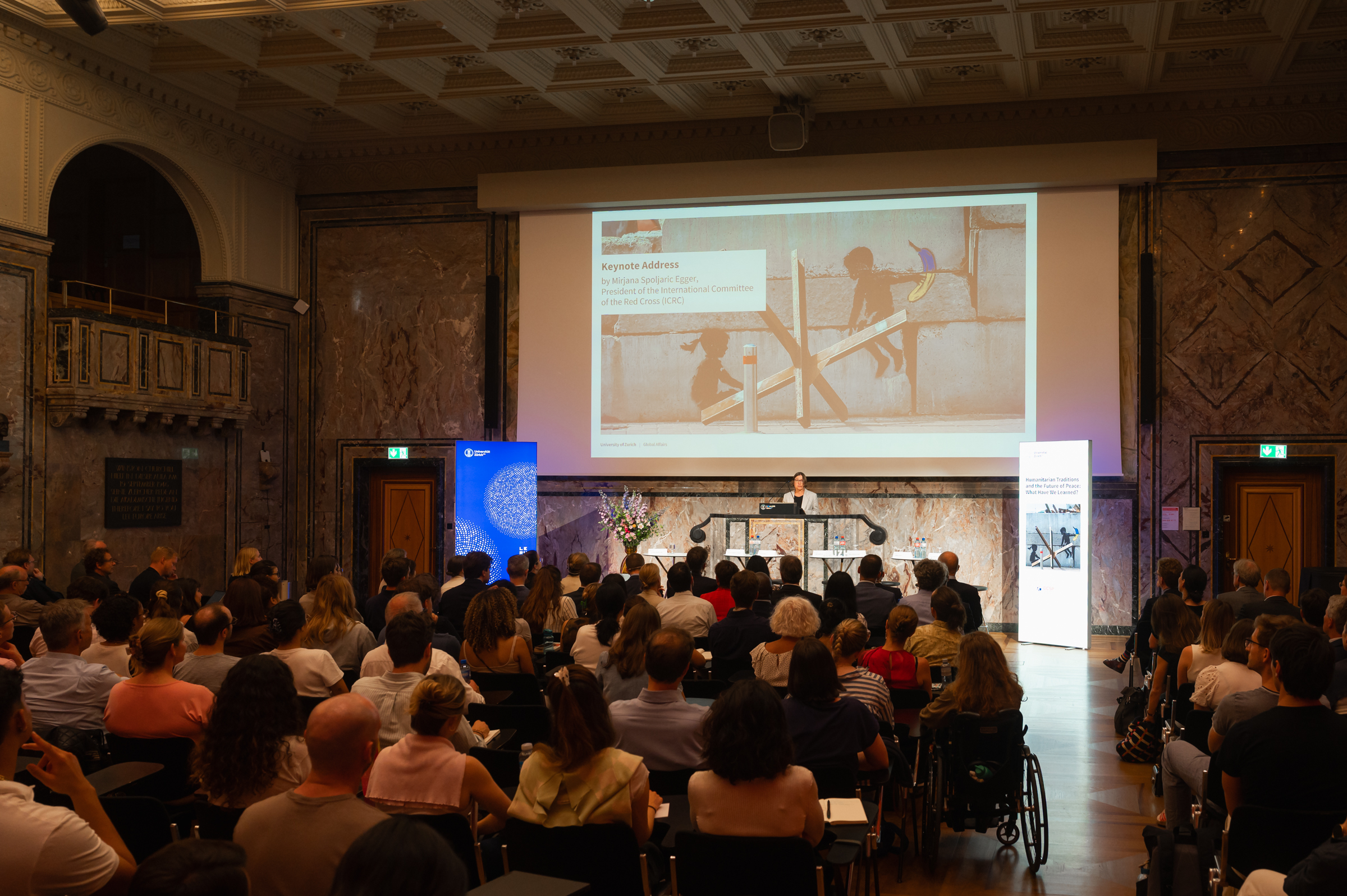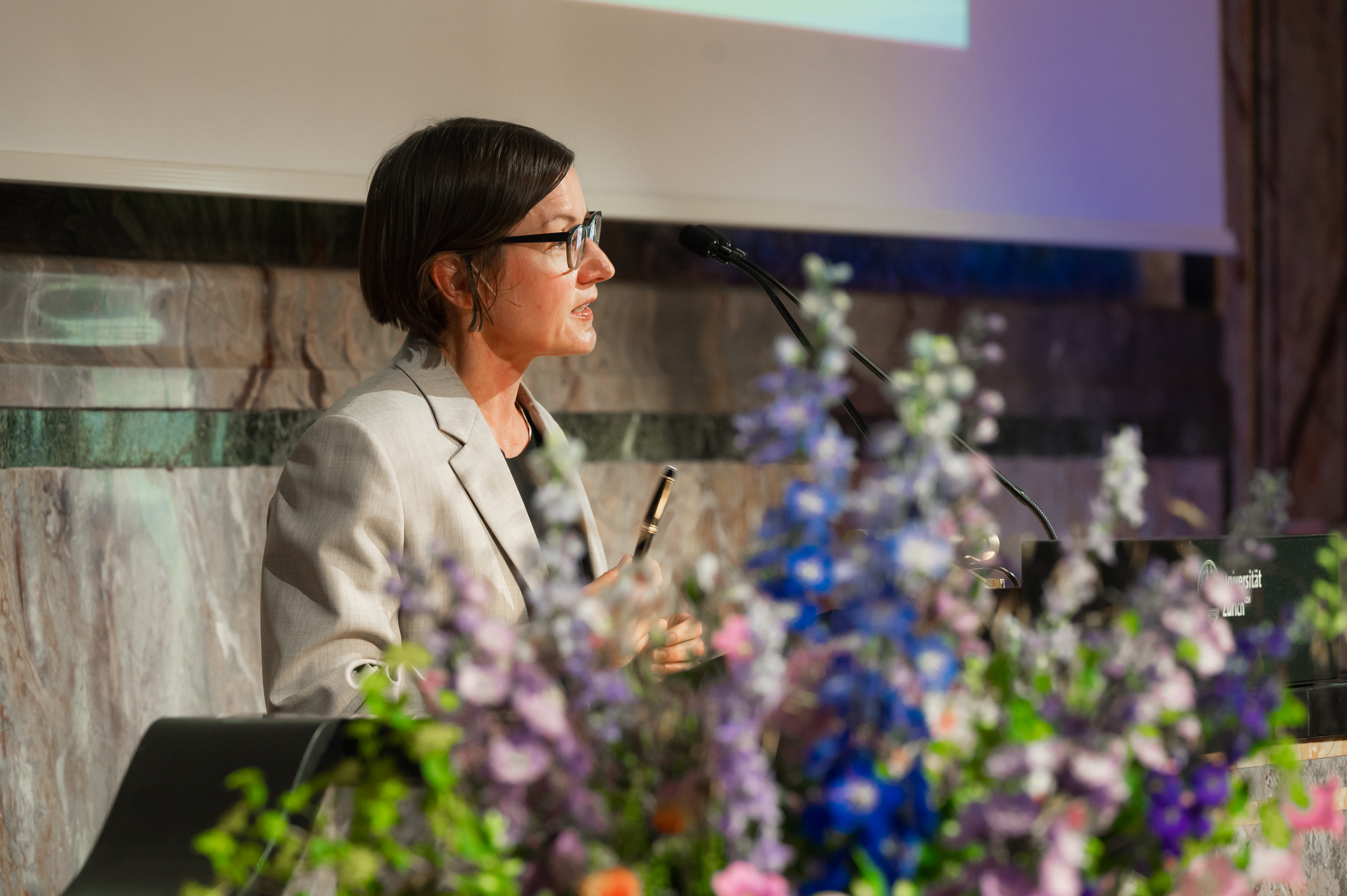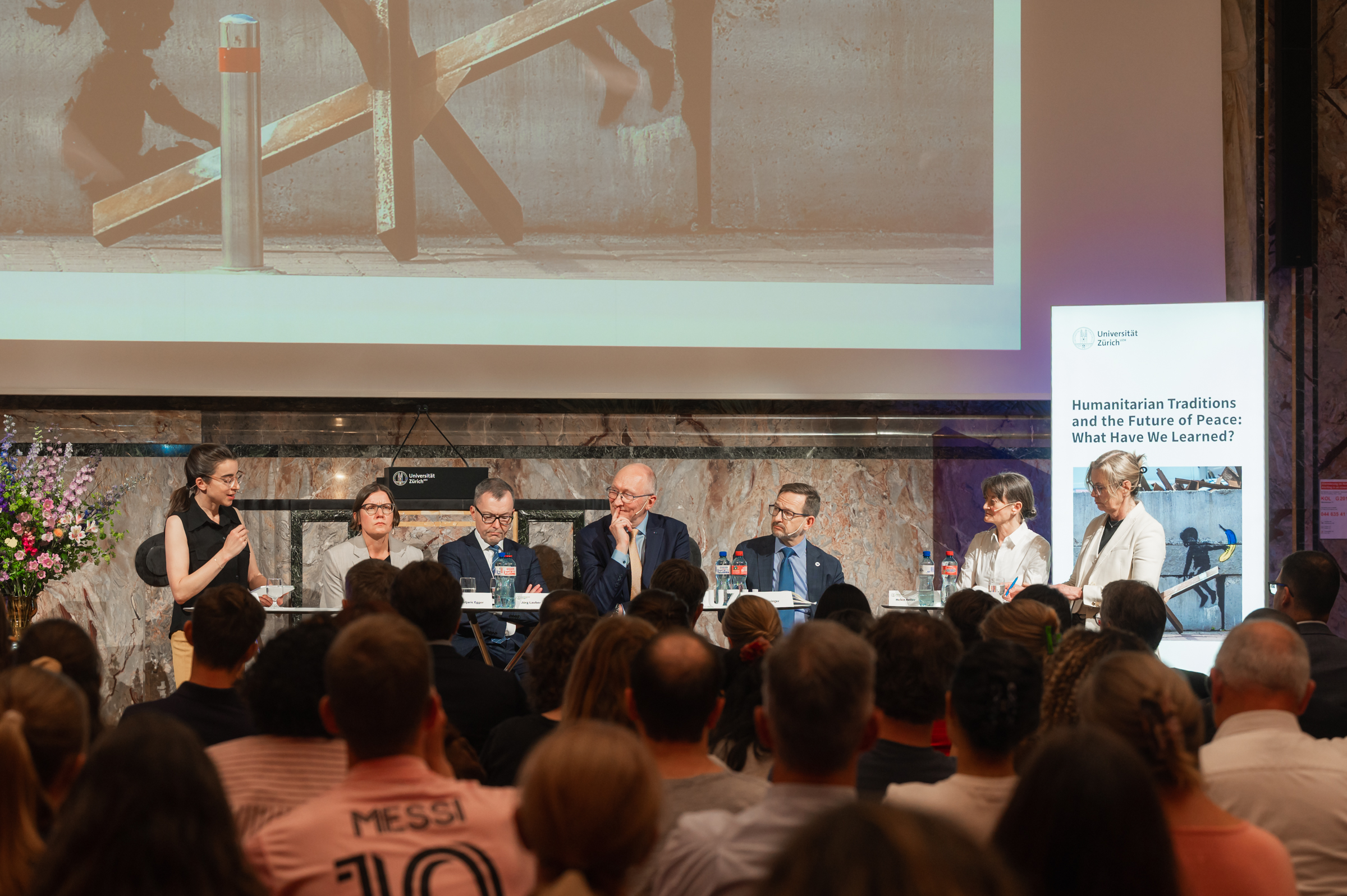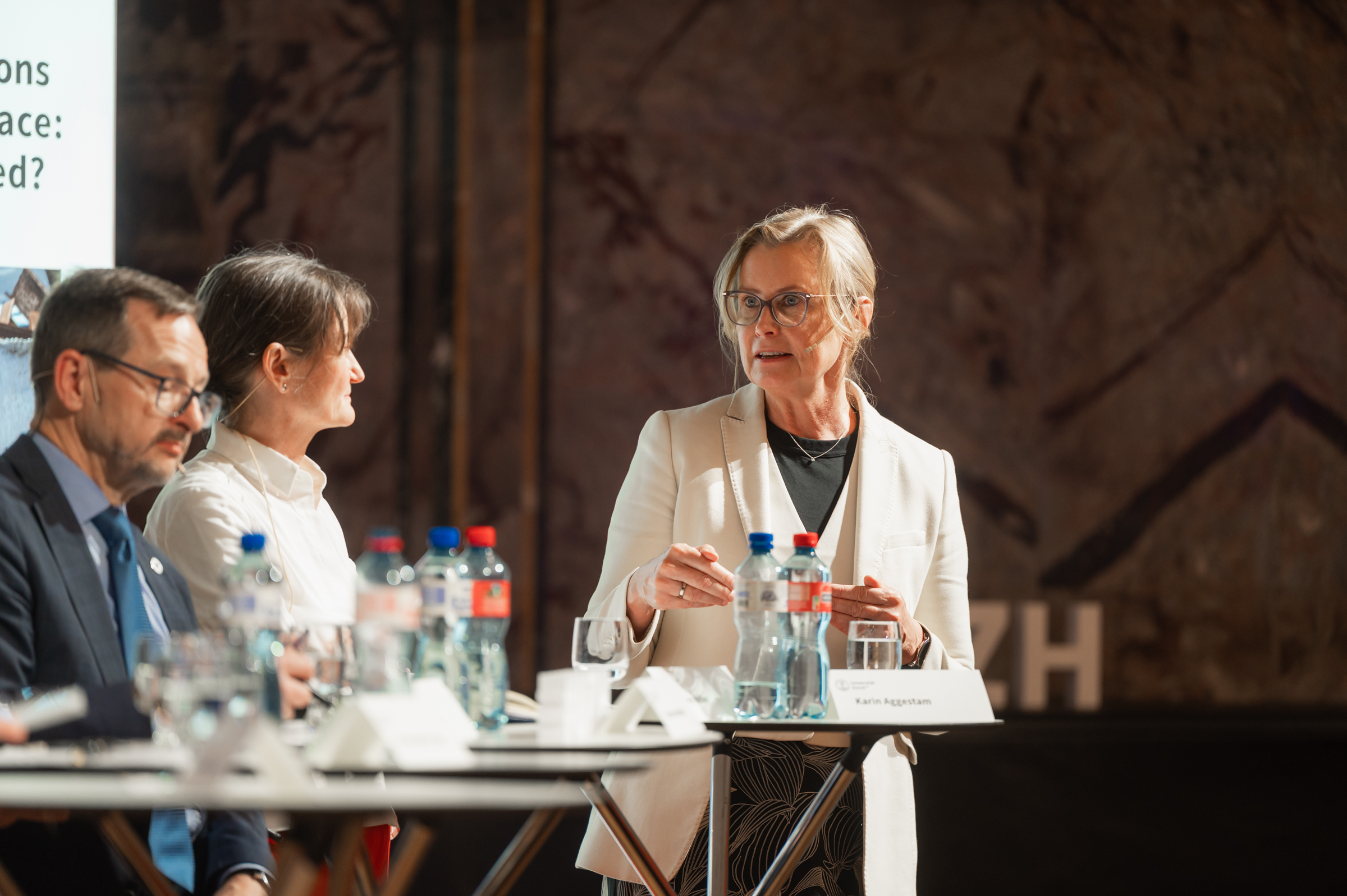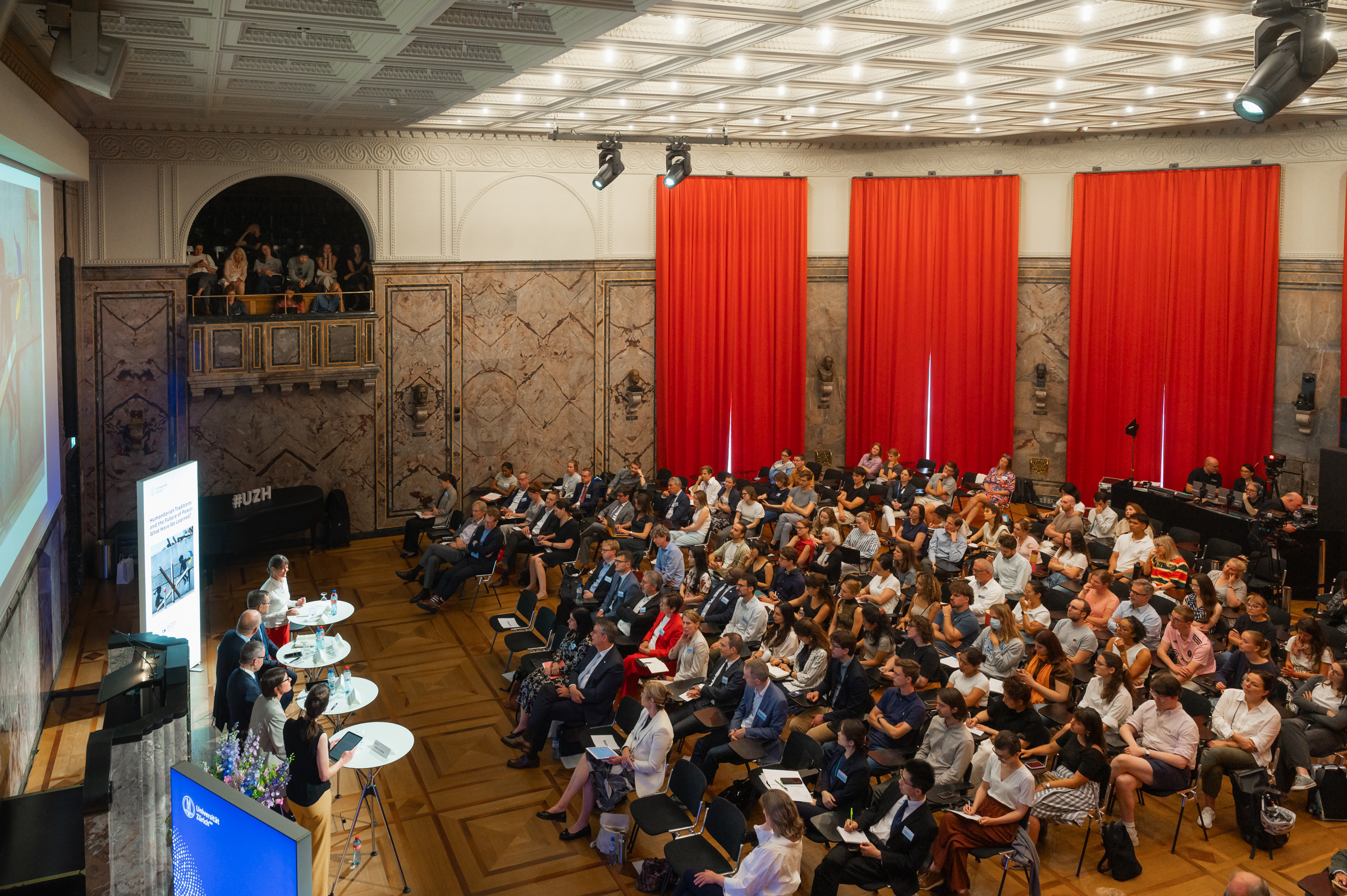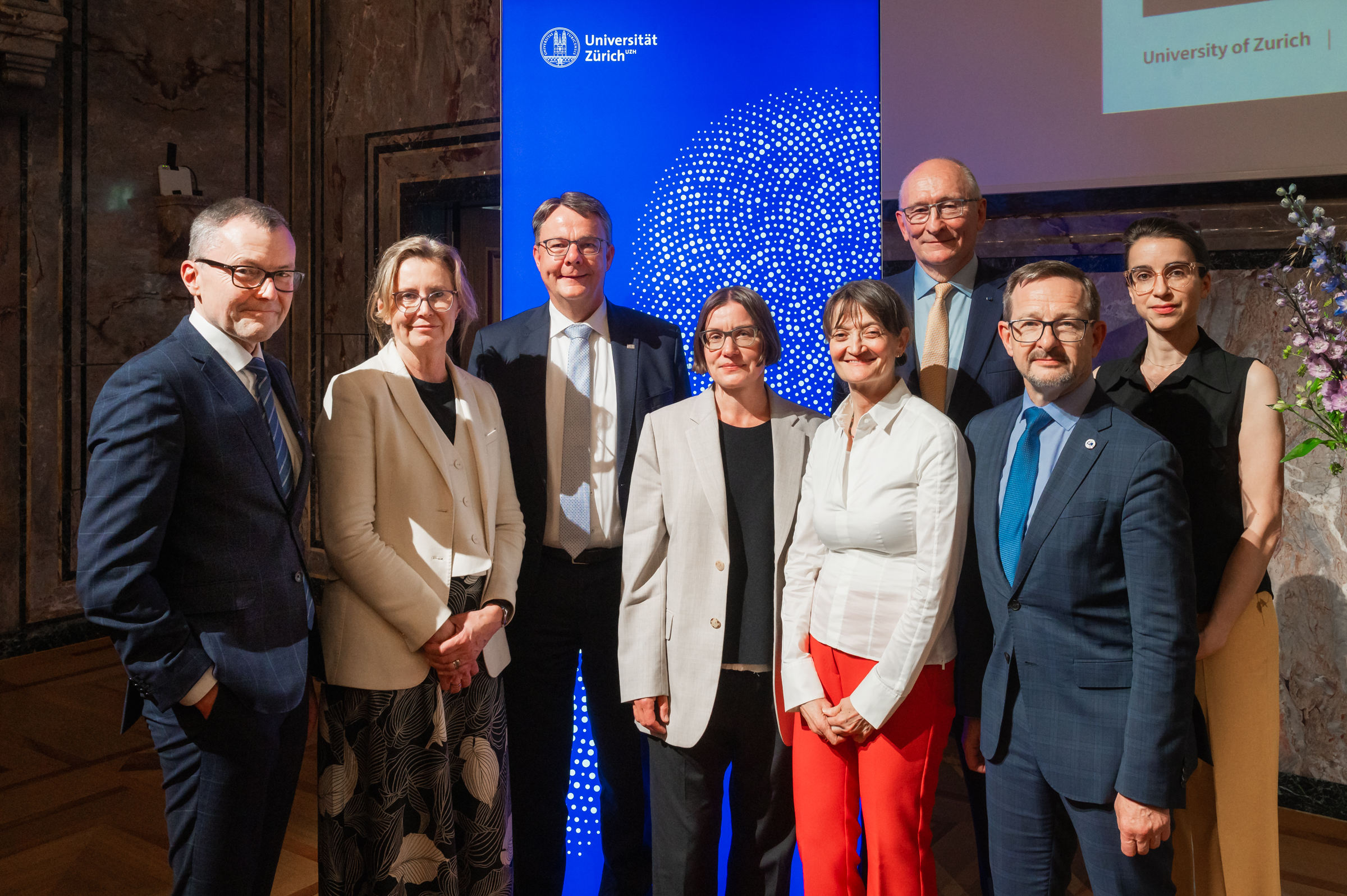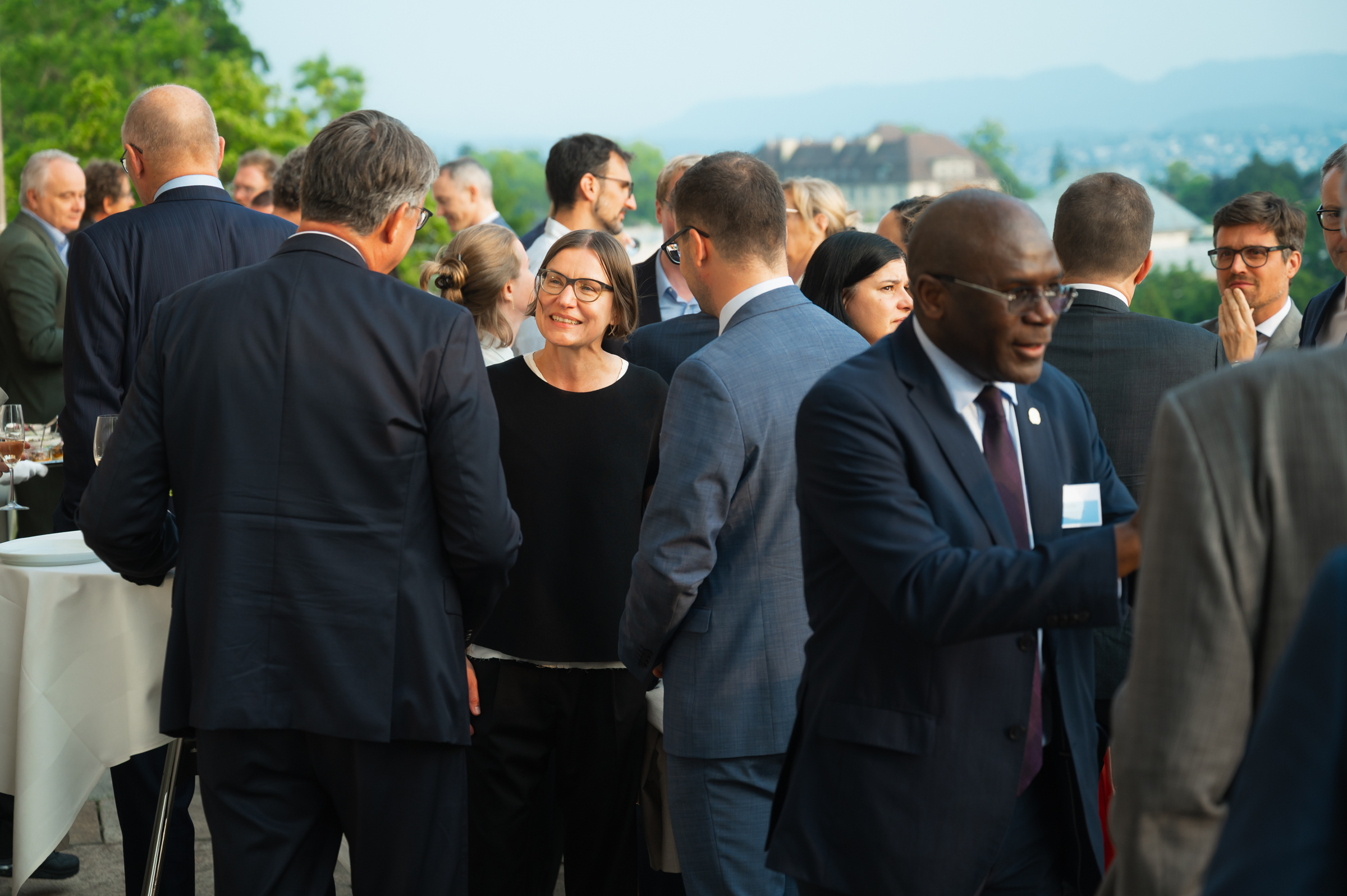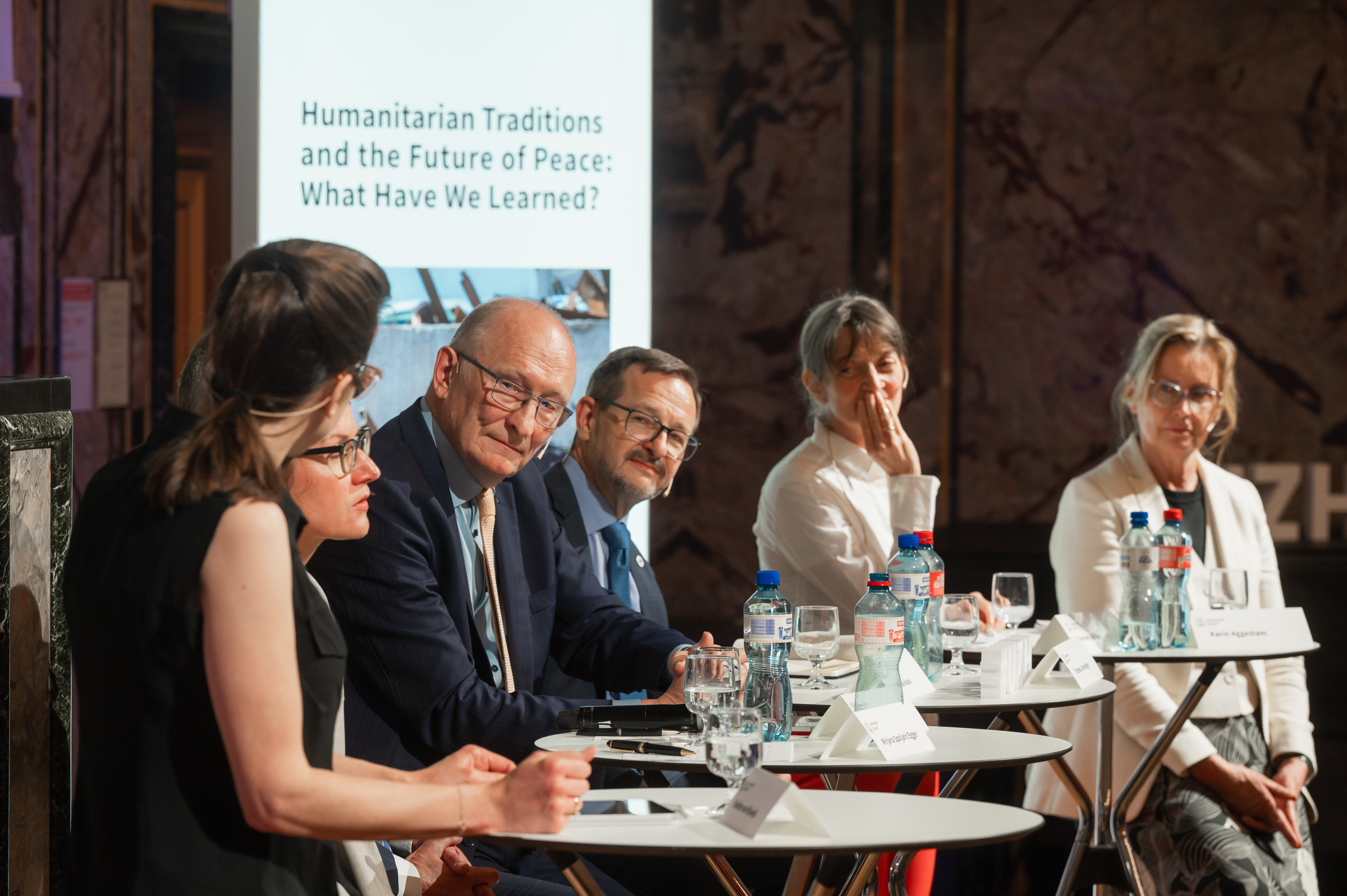UZH Hosts a Transdisciplinary Dialogue on Humanitarian Traditions and Peacebuilding
On 10 June, the University of Zurich (UZH) hosted a public event entitled “Humanitarian Traditions and the Future of Peace: What Have We Learned?”. The event brought together diplomats, academics, and humanitarian experts to reflect on the evolving challenges of conflict and the conditions necessary for sustainable peace.
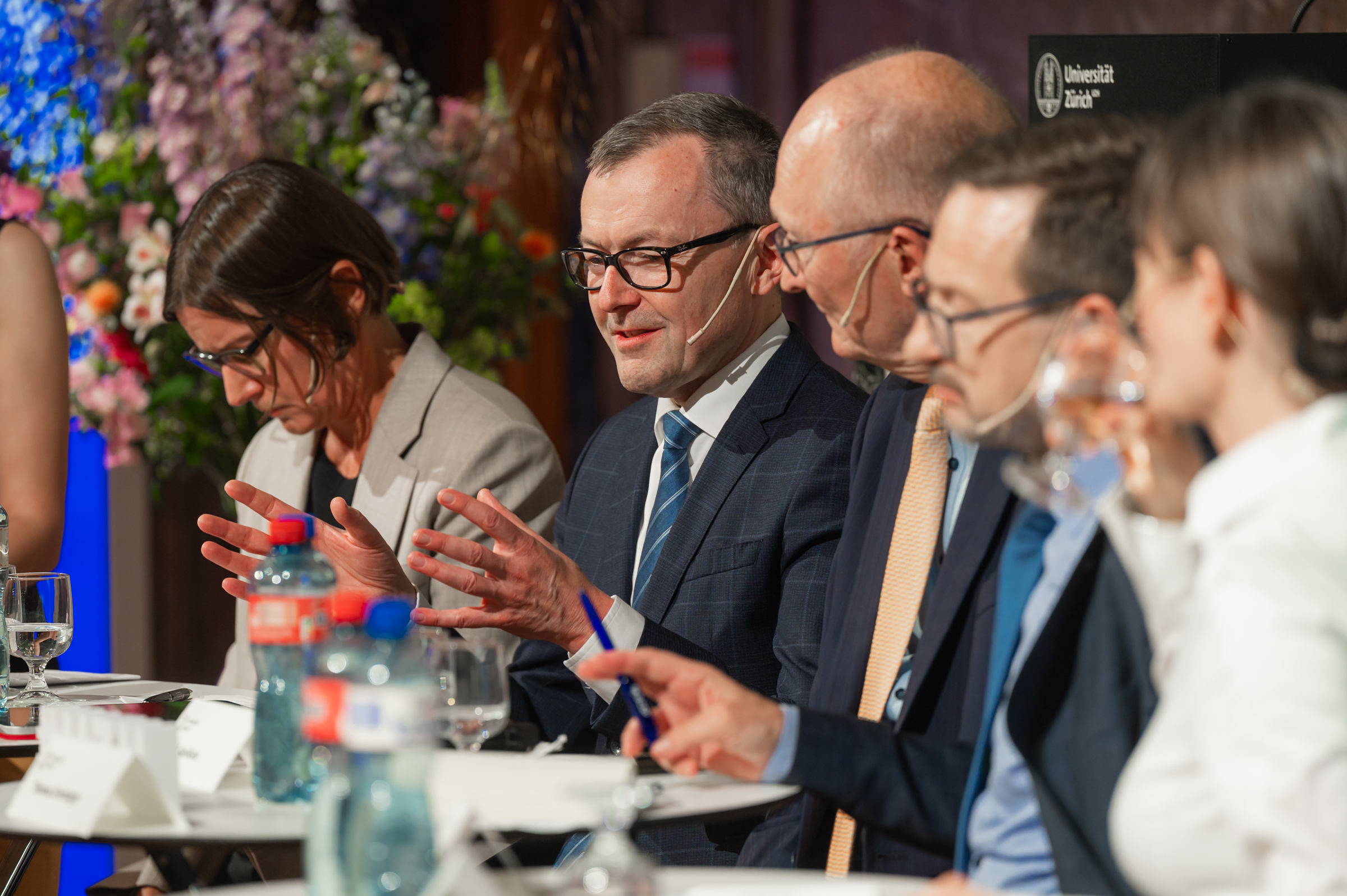
Opening the event, UZH President Professor Michael Schaepman highlighted Switzerland’s long-standing humanitarian traditions and emphasized the university’s role as a neutral platform for trans- and interdisciplinary dialogue. He noted that building peaceful and resilient societies requires not only political engagement, but also a commitment to evidence-based discussion across institutional and national boundaries.
Keynote: Humanitarian action as a pathway to de-escalation
The keynote address was delivered by Mirjana Spoljaric Egger, President of the International Committee of the Red Cross (ICRC). She described the ICRC’s work in over 130 conflict zones and outlined how adherence to International Humanitarian Law (IHL), along with neutral humanitarian action, can support de-escalation and prepare the ground for reconciliation.
Spoljaric emphasized that while the ICRC is not a peacebuilding institution, its operational presence and intermediary role often contribute to the conditions necessary for dialogue, trust-building, and the protection of civilians.
“Across three major events this year, States and practitioners highlighted that IHL, when integrated early in peace negotiations, can foster trust, open space for humanitarian dialogue, and serve as a foundation for inclusive, sustainable peace.”
— Mirjana Spoljaric Egger, President of the ICRC
Panel reflections: Lessons from contemporary conflicts
Following the keynote, the panel brought together Ambassador Jürg Lauber, Ambassador Thomas Greminger, Professor Helen Keller, Professor Karin Aggestam, and former Estonian Minister Jaak Aaviksoo, for a moderated discussion. They examined real-world cases from Ukraine, Bosnia, Syria, and Uganda to identify both enabling and obstructive factors in peace efforts. Several speakers addressed the importance of acknowledging local agency, avoiding excessive international dominance, and understanding divergent value systems in an increasingly multipolar world.
Professor Karin Aggestam provided a synthesis of the discussion from a research perspective. She emphasized the growing politicization of humanitarian action and the need for more inclusive peace processes. She called for stronger links between research and practice to address fragmentation in peacebuilding efforts and highlighted the role of interdisciplinary collaboration in shaping effective, evidence-based approaches.
The discussion concluded with a short Q&A session. The event was organized by UZH Global Affairs and supported by the League of European Research Universities (LERU) and the Geneva Centre for Security Policy (GCSP).
This discussion forms part of UZH’s broader engagement and its focus on addressing global challenges through trans- and interdisciplinary dialogue and research.
Tiffany Merz-Cheok
